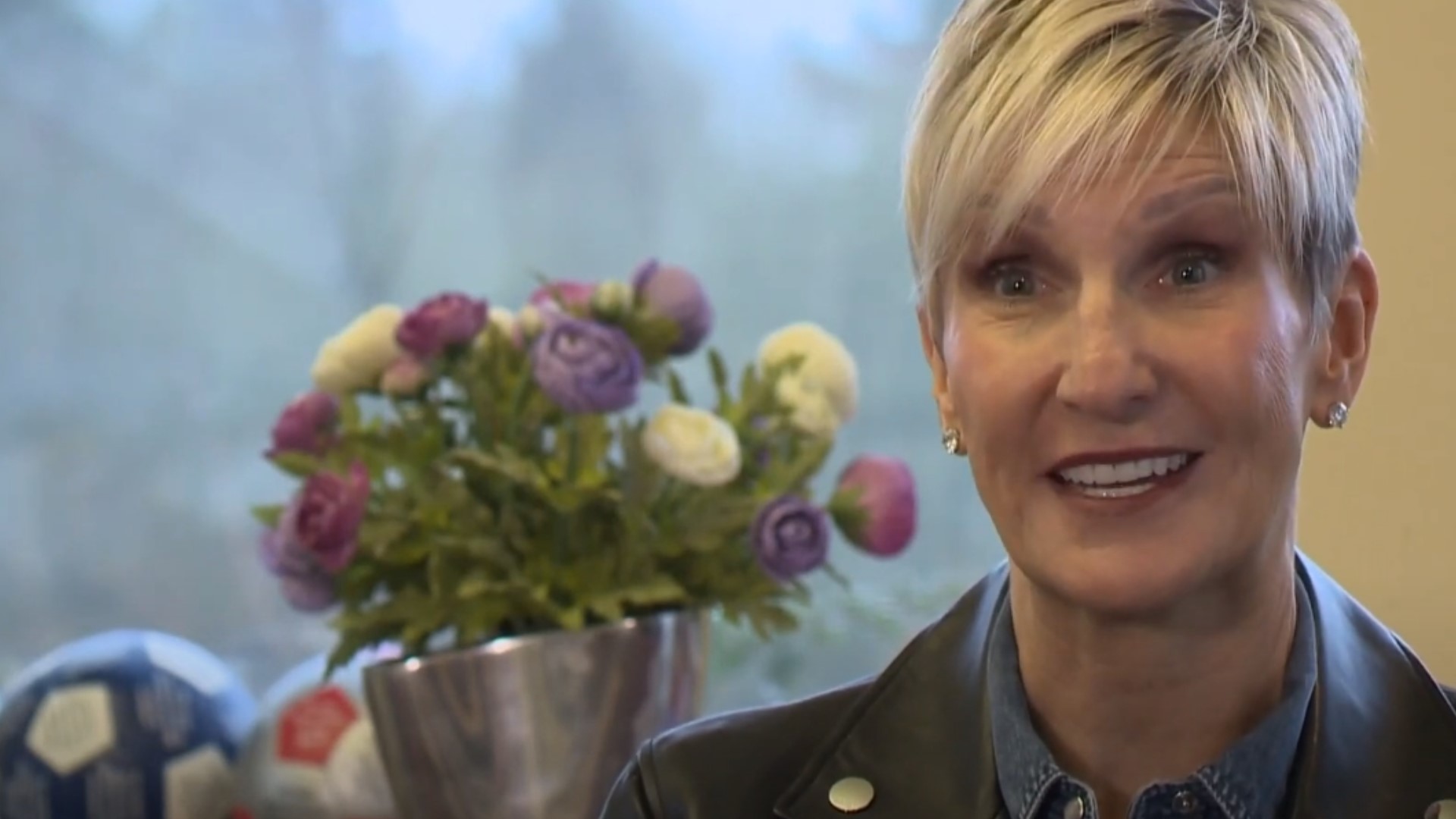NEWBERG, Ore. — A new year ushers in an annual movement to pump the breaks on booze. While many see 'Dry January' as a healthy reset after overindulging over the holidays, it can also be a good time to reflect on the impact alcohol is having on your body and mental health.
“I love Dry January, and the reason I love it is that it really does reduce the shame around talking about drinking,” Carrie Bates said.
Bates is a mom, a three-time Olympic gold medalist swimmer, and the senior outreach manager and national recovery ambassador for Hazelden Betty Ford.
“This is a second career for me, but this is the first time in my life, at age 55, that my purpose and my passion have finally intersected,” Bates said.
She now works with the Hazelden Betty Ford center in Newberg. It is the same place where she found her path to sobriety.
“For me, the key was transparency, honesty, and being willing to look at the causes and conditions of my drinking,” she said. “I finally got willing to do the work that I needed to do — and here I am, almost 12 years later.”
Bates sees Dry January not only as a healthy break from alcohol but also as a real opportunity to re-evaluate and assess your relationship with substance use.
“It’s about looking at their relationship with alcohol before they get to where I was before they have to step foot into multiple treatment centers — that is nothing but healthy and really good self-care,” Bates said.
“There’s this sober-curious movement which is — for us that work in the field — fabulous because so many people think of addiction, and 'Oh, you have to hit rock bottom to get to this phase,' when in actuality, most people find a road to sobriety before it even becomes a problem,” said Vice President of Hazelden Betty Ford Foundation’s Northwest region Heidi Wallace.
Dry January can be the catalyst for that: Whether it’s Dry January or Sober October, you might be “sober-curious," it's really about confronting how we use alcohol and how it impacts our overall health.
“Often when people talk about getting healthy, they talk about what are they eating and exercising — they completely eliminate alcohol and the substances they’re putting in their body, outside of the food, and it’s really interesting because all of those things are having an impact,” Wallace said.
“I think the conversation is so important because we owe it to the next generation to talk about things that are unhealthy to participate in,” Bates said.
The impact alcohol has on our health can be profound. Research shows no amount of alcohol is good for your body. Claims that alcohol has heart health benefits have largely been debunked.
Over time, excessive alcohol use can lead to chronic diseases and other problems.
Long-term health risks include, according to the CDC:
- High blood pressure, heart disease, stroke, liver disease, and digestive problems
- Cancer of the breast, mouth, throat, esophagus, voice box, liver, colon, and rectum
- Weakening of the immune system, increasing the chances of getting sick
- Learning and memory problems, including dementia and poor school performance
- Mental Health problems including anxiety and depression
- Social problems, including family problems, job-related problems, and unemployment
- Alcohol use disorders, or alcohol dependence
The benefits of taking a break from alcohol are shared all over social media during Dry January.
“Their skin is better, they’re less anxious, they’re better rested, they’re less puffy, they’re more motivated, they have more energy,” Bates said. “There are so many benefits to taking this break.”
Doctors do caution that a 30-day abstinence from alcohol won’t reverse the damage of years of heavy drinking, but it can provide noticeable health improvements.
Regular drinkers who went without alcohol for just one month were found to have a “rapid decrease” in certain chemical messengers in the blood that are associated with cancer progression, a study found. The participants also saw improvements in their insulin resistance, weight and blood pressure.
Almost three-quarters (71%) of people who took part in Dry January said they slept better and 67% had more energy, according to a University of Sussex study. More than half, 58%, lost weight, and 54% reported better skin.
When participating in Dry January, Wallace recommends monitoring changes and journaling is a great way to do that.
“Whenever you’re trying to do that’s different, it’s always good to journal about it,” Wallace said.
When taking that closer look at your relationship with alcohol, Bates suggests focusing on what alcohol does to them, not for them.
“Maybe people feel more social, more acceptable, prettier, more confident when they’ve had a few drinks and they’re going out with friends,” Bates said. “That’s what it’s doing for them, but what is it doing to them? Is it really making them more confident, or is it only making them reliant on alcohol to feel more confident? So, it does things for us, but what it does to us is much more significant.”
Resources
Whether you’re sober-curious or you feel as though you may need more help for a substance use disorder, there are many resources in our community. Recovery looks different for everyone, and there is support to fit your individual needs.
- Hazelden Betty Ford offers free assessments in person or over the phone.
- Free and confidential help is also available 24/7 at the Substance Abuse and Mental Health Services Administration’s (SAMHSA) National Helpline, 1-800-662-4357

